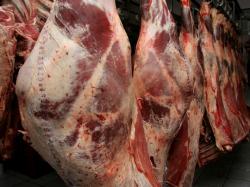Harper Government Welcomes New International Standards On Ractopamine
July 12, 2012 | 2 min to read

OTTAWA, ONTARIO – Agriculture Minister Gerry Ritz today applauded the adoption of a new standard for ractopamine levels by the Codex Alimentarius Commission (CAC), a United Nations body that sets international food standards, guidelines, and codes of practice. The standard is expected to facilitate trade and create new export opportunities for Canadian beef and pork producers.
"This marks an important step forward for science-based trade, an approach this government has constantly advocated with trading partners around the globe," said Minster Ritz. "The Harper Government worked diligently with key Codex members to advocate for a science-based decision on the adoption of this new standard."
Ractopamine is a feed additive that is used by Canadian beef and pork producers. Health Canada approved its use after a thorough evaluation, including the completion of a human health risk assessment. The establishment of an international science-based standard on maximum residue limits (MRLs) for ractopamine will help provide clarity and greater trade predictability for Canadian producers, processors, and exporters.
"The Canadian Pork Council thanks the Government of Canada delegation to the Codex meetings for their leadership efforts in achieving this important science-based decision," said Canadian Pork Council Chair Jean-Guy Vincent.
The new standard was finalized on July 7 at the conclusion of a CAC meeting in Rome, Italy. During this meeting, the CAC adopted standards for MRLs for ractopamine for certain pork and beef products.
Canada is pleased to see a resolution to this issue, and it remains committed to the use of international standards based on scientific evidence. This new standard comes after years of international engagement by Minister Ritz, International Trade Minister Ed Fast, and Government of Canada officials from other departments and agencies, including Health Canada, Foreign Affairs and International Trade Canada, the Canadian Food Inspection Agency, and Agriculture and Agri-Food Canada.
The Codex was established by the Food and Agriculture Organization (FAO) of the United Nations and the World Health Organization (WHO) to develop harmonized international food standards, guidelines, and codes of practice to protect the health of the consumers and ensure fair food trade practices. This decision is based on the scientific advice of the Joint FAO/WHO Expert Committee on Food Additives, the independent international expert scientific committee that performs risk assessments and provides advice to the CAC.
Source: Agriculture and Agri-Food Canada
